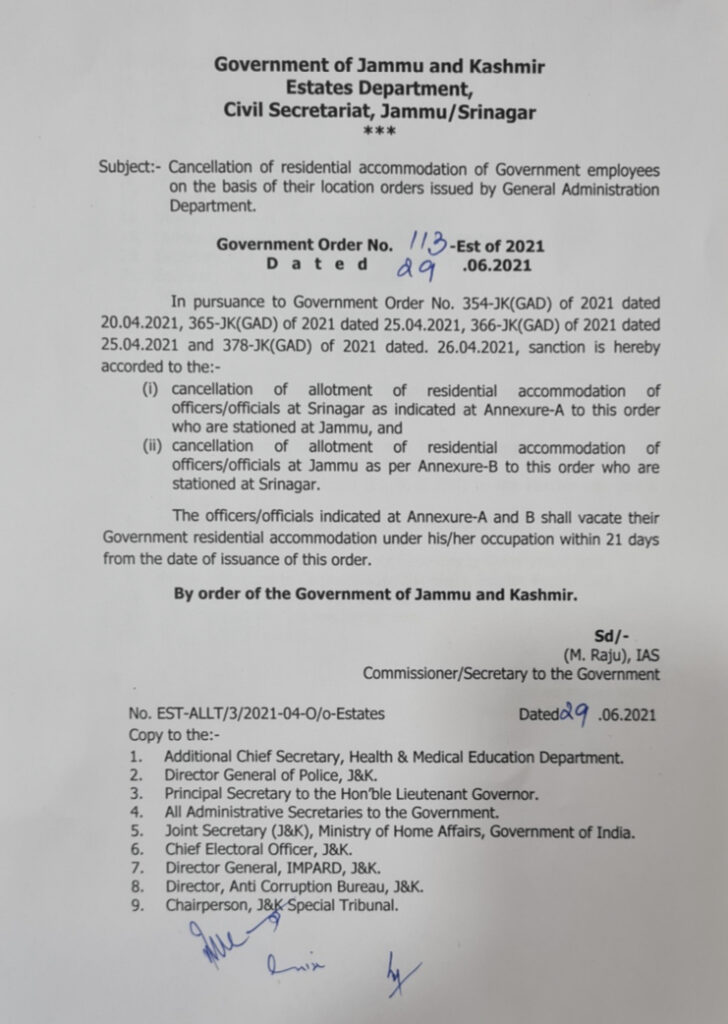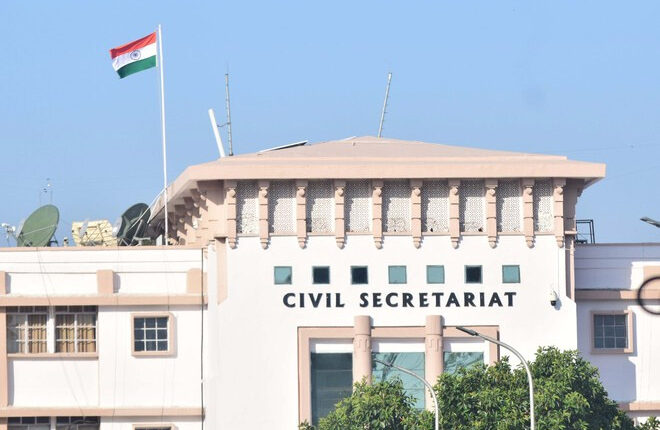J&K Government cancels residential accommodation allotted to darbar move employees at Jammu and in Srinagar
Estates Department asks officials to vacate allotted accommodation within 21 days
Jammu: Days after Lt Governor Manoj Sinha announced an end to149-year old Darbar move practice between two summer capital cities of Jammu and Kashmir, the UT administration on Wednesday cancelled residential accommodations of ‘darbar move’ employees in Jammu and Srinagar.
Since the civil secretariat, in view of COVID-19 pandemic, is presently functioning at both Jammu and Srinagar with employees working as is where is basis, the Estates Department has cancelled the allotment of residential accommodation of Srinagar based employees at Jammu and vice versus.
They have been asked to vacate their quarters in the twin Capital cities within three weeks.

The UT’s Lt Governor Manoj Sinha in “Awam ki Awaaz” aired on local and primary channels of AIR stations in Jammu and Kashmir on June 20 said “the Jammu and Kashmir administration has completely transitioned to e-Office, thereby ending the practice of hundreds of years old Durbar Move”.
“Now both the Jammu and Srinagar secretariats can function normally for twelve months. This will save the government Rs 200 crore per year, which will be used for the welfare of the deprived sections,” he had added.
Earlier darbar move employees hailing from Jammu had been allotted residential accommodation in Srinagar and those from Kashmir in Jammu. However, when former returned to Jammu during Darbar Move, he used to retain his allotted accommodation in Srinagar. Same was the case with respect to employees hailing from Kashmir.
As part of the ‘darbar move’, the Raj Bhavan, the civil secretariat – seat of the Jammu and Kashmir government – along with many other offices used to shift between Jammu and Srinagar twice a year.
The practice, under which the administration used to function in Jammu during the six months of winter and in Srinagar during the summer, was started by Maharaja Gulab Singh in 1872.

